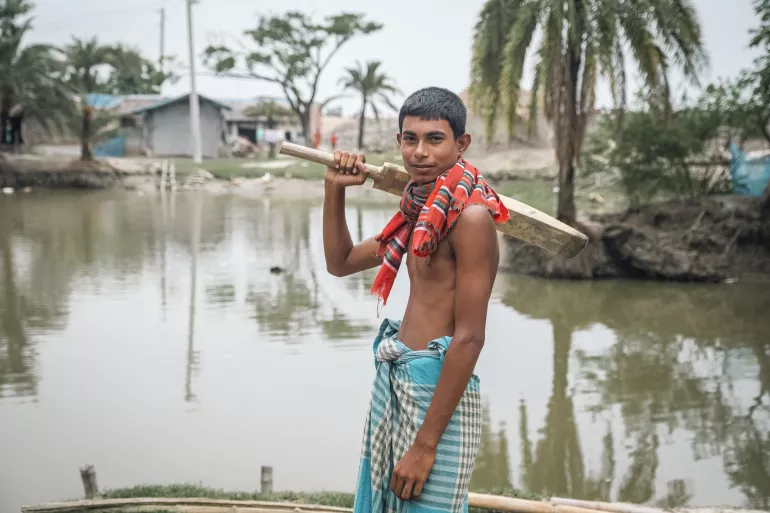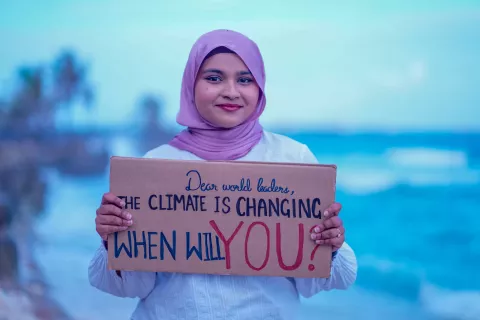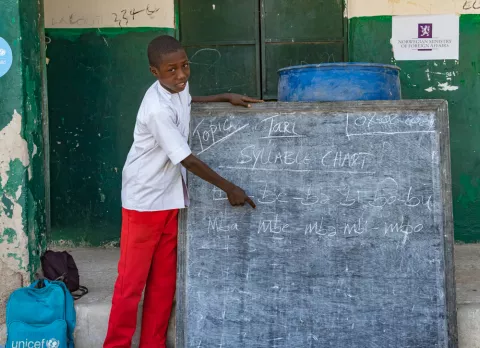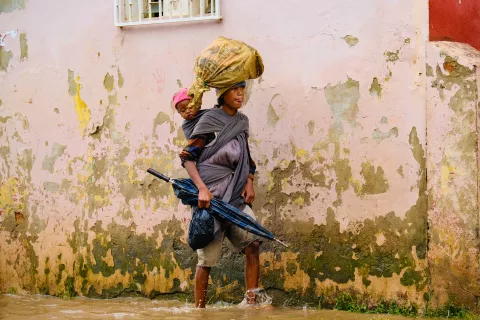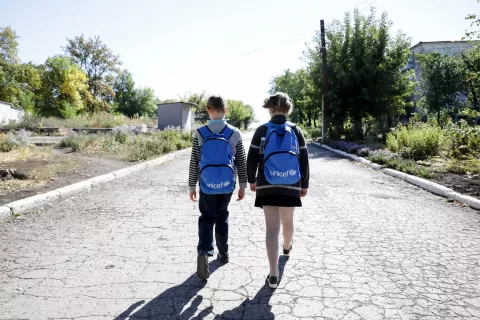There’s no greater threat to humanity than the delusional belief that the climate crisis will spare the privileged few. The most humbling and terrifying thing about the climate catastrophe is that it does not discriminate – it will get to all of us eventually.
The climate movement begs for an intergenerational consensus on acknowledging the severity of the climate crisis and its impacts on our wellbeing, education, employment and food systems. It should be envisioned as a human rights movement, as billions struggle to secure their basic right to clean air and water.
As young people our responsibility is to bring to power leaders who put climate action first. The climate movement should urgently graduate from advocacy to a rapid implementation phase in proactive partnership with global leaders. The role of the leaders is two-fold: to oversee implementation and nurture an ecosystem that incentivizes just transition and to ensure that there are adequate safety nets for the most vulnerable and marginalized communities while implementing rapid plans for adaptation and mitigation.
The disruptive impact of transition on vulnerable communities can be mitigated by empowering them as agents of change rather than victims of change. Involving communities as chief architects will simultaneously cultivate a tradition and shared understanding of sustainability, thus signifying greater awareness and ownership of one’s environment.
As the Founder of Girl Up Zubaan, a local initiative in India aimed at empowering the marginalized, I want to shine light on the intersection of gender and climate and how it can be leveraged to reach global consensus on climate action.
My city, Chandigarh and the entire north of India was battered with the record-breaking rains leading to catastrophic flooding in July 2023. Women and children in the most impoverished regions suffered disproportionately due to disruption of food and water services, compromised sanitation and hygiene thus complicating and compounding their existing vulnerabilities with respect to their economic, physical and psychological well-being. Disaster-prone areas become breeding grounds for exploitation of women and other vulnerable communities. It’s one thing to devise climate adaptation and mitigation techniques from a women-centric perspective to account for the unique vulnerabilities that arise due to climate change, but it’s altogether different to have female leaders at the helm of policy-making and implementation. Women should equally be part of the solution.
Parneet Kaur is a member of the YOUNG Climate Finance Working Group, India.
This essay was originally published in The climate-changed child (2023), a UNICEF report that examines water scarcity and water vulnerability.

